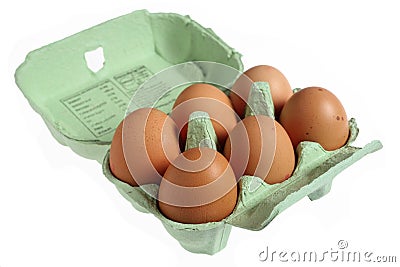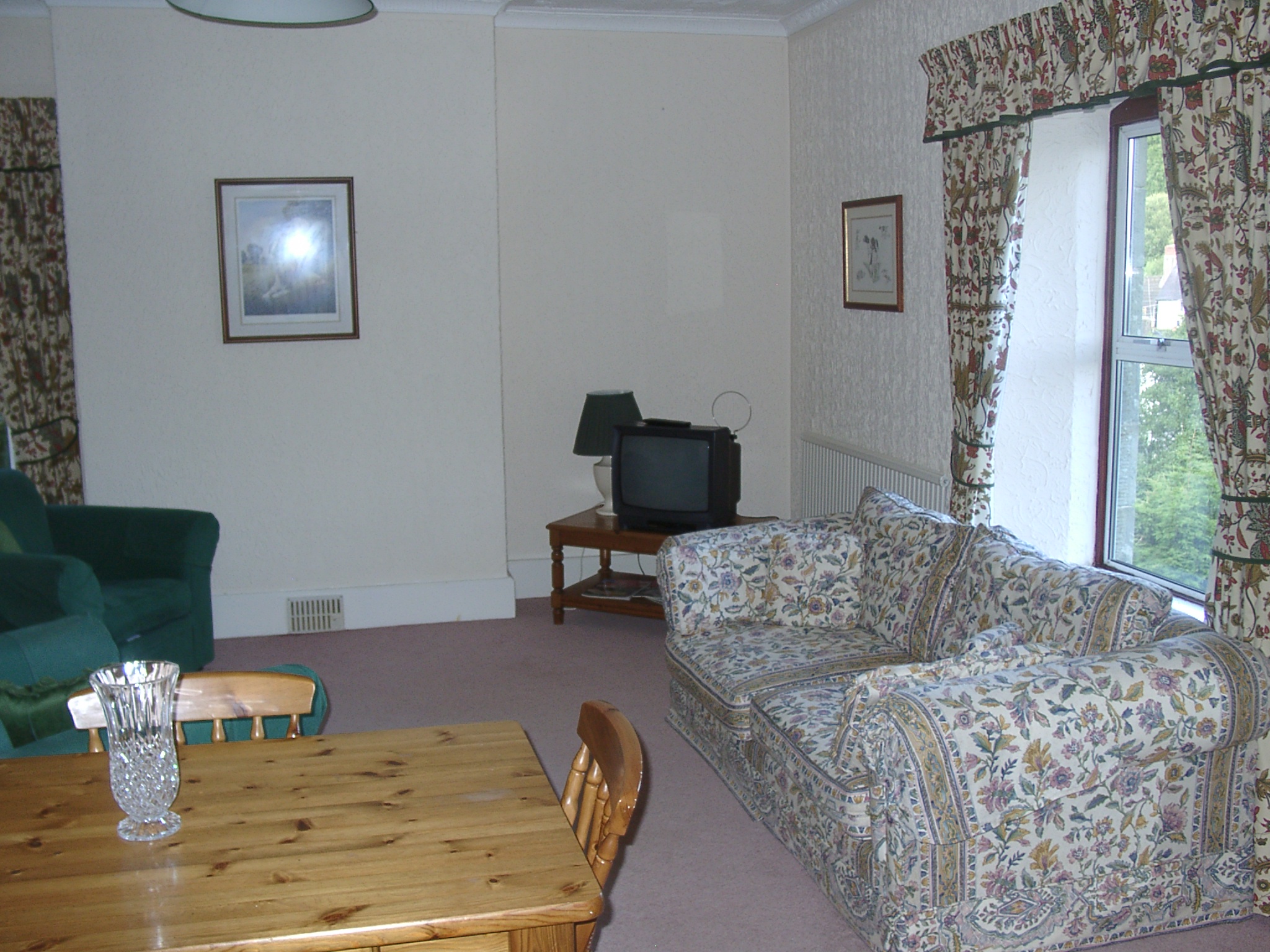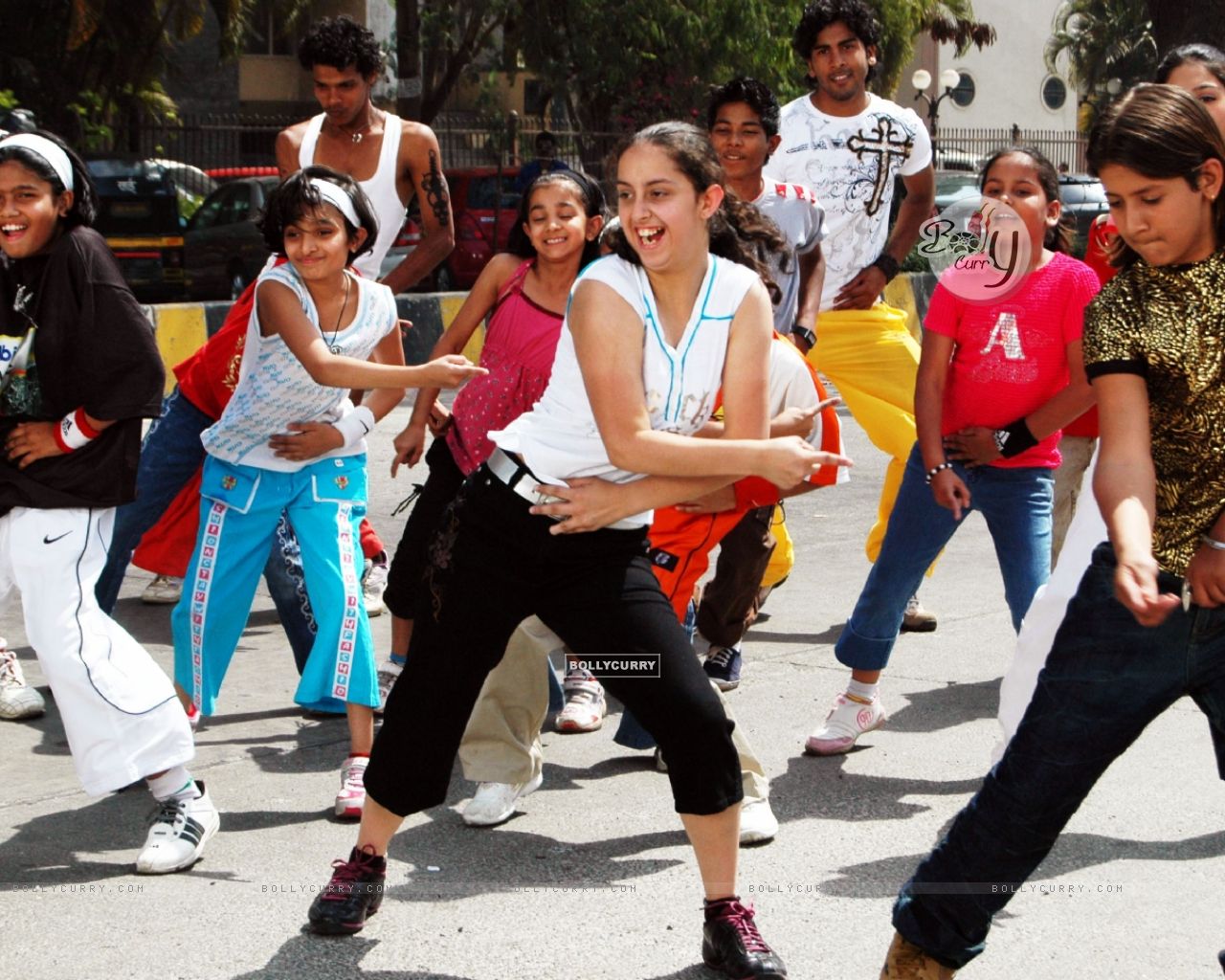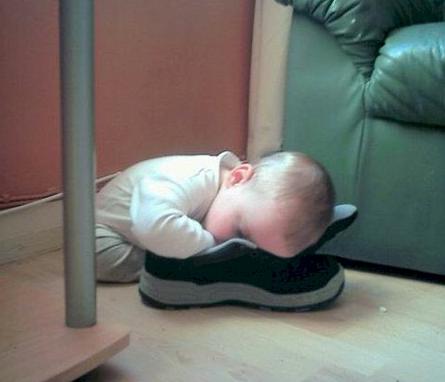Doc (Tudor)
Considered the leader of the Seven Dwarfs, Doc is presumably the oldest. He wears glasses and oftentimes mixes up his words. His job in the Dwarfs' Mine is to check the authenticity of the many gems.
Considered the leader of the Seven Dwarfs, Doc is presumably the oldest. He wears glasses and oftentimes mixes up his words. His job in the Dwarfs' Mine is to check the authenticity of the many gems.

Grumpy (Morgó)
Grumpy is grumpy as his name suggests. He has the biggest nose of the seven and he automatically disapproves of Snow White for the mere fact that she is a woman. However, though initially too proud to show it, deep down he cares perhaps the most for her safety. He repeatedly warns her of the Wicked Queen and rushes to her aid upon hearing she is in danger.
Grumpy is grumpy as his name suggests. He has the biggest nose of the seven and he automatically disapproves of Snow White for the mere fact that she is a woman. However, though initially too proud to show it, deep down he cares perhaps the most for her safety. He repeatedly warns her of the Wicked Queen and rushes to her aid upon hearing she is in danger.
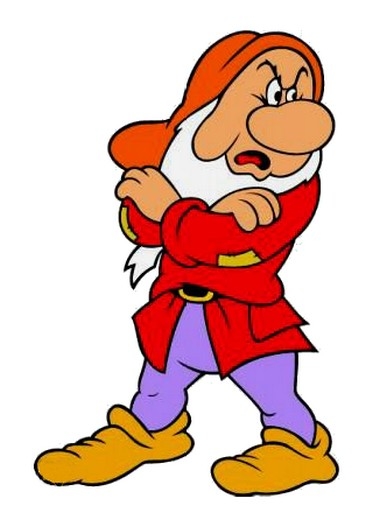
Happy (Vidor)
Happy is the joyous dwarf. He is the fattest of the seven and is always laughing.
Happy is the joyous dwarf. He is the fattest of the seven and is always laughing.
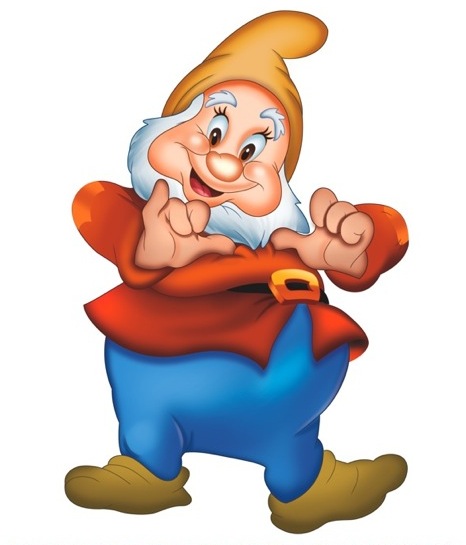
Sneezy (Hapci)
Sneezy sneezes almost all the time. He has the shortest beard of the seven (besides the beardless Dopey). The cause of his sneezes is an allergy to flowers.
Sneezy sneezes almost all the time. He has the shortest beard of the seven (besides the beardless Dopey). The cause of his sneezes is an allergy to flowers.

Bashful (Szende)
Bashful is the shyest of the dwarfs. Whenever he begins to feel shy, his entire face turns bright red. Oftentimes he annoys Grumpy.
Bashful is the shyest of the dwarfs. Whenever he begins to feel shy, his entire face turns bright red. Oftentimes he annoys Grumpy.
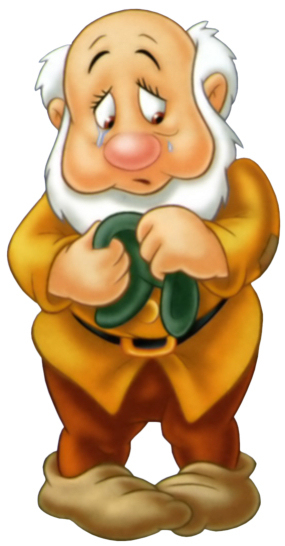
Sleepy (Szundi)
Sleepy is always tired with heavy eyelids. His job at the mine is to haul all the diamonds and rubies by cart to Doc for inspection. He also has the longest beard of the seven. Usually he's pestered by a fly.
Sleepy is always tired with heavy eyelids. His job at the mine is to haul all the diamonds and rubies by cart to Doc for inspection. He also has the longest beard of the seven. Usually he's pestered by a fly.

Dopey (Kuka)
Dopey is the youngest dwarf, and therefore has no beard at all. He is mute, or at least the dwarfs don't know if he can talk since "he ain't never tried before". His job at the mine is to clean up all the unusable jewels and lock up the vault. He is always seen last in line whenever the dwarfs walk to and from work. Although he is scared at times, he can also be very brave especially when Snow White is in danger.
Dopey is the youngest dwarf, and therefore has no beard at all. He is mute, or at least the dwarfs don't know if he can talk since "he ain't never tried before". His job at the mine is to clean up all the unusable jewels and lock up the vault. He is always seen last in line whenever the dwarfs walk to and from work. Although he is scared at times, he can also be very brave especially when Snow White is in danger.



